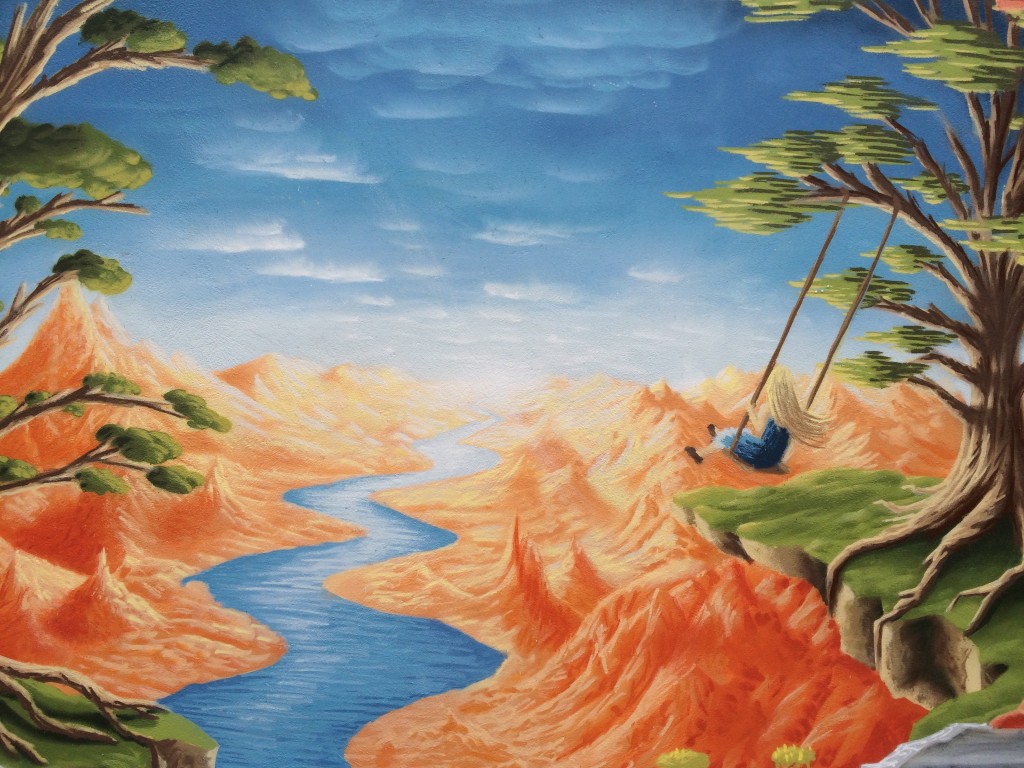This one of my favourite new art works I discovered recently:
The artist is not famous. You can’t see his work in museums. He does not sell pieces at exorbitant prices.
The creator of this piece is called Orlando Kintero (for more of his work, see www.orlandokintero.com). The exposition venue that he has chosen for this particular piece is the street. To be more precise, my street.
Ever since I moved to Brussels and started opening my eyes, I’ve been amazed by street art. To me, the work done by Orlando and his colleagues is a true form of art. Street art makes public spaces more beatiful, and these artists deserve praise for that.
I met Orlando for a beer last week. It was an interesting meeting. Our social circles and political opinions are far apart, and we challenged each other’s beliefs. But during the meeting, we also found out that I as part of his audience and he as an artist think similar about street art.
Orlando believes that art – whether on the street or on inside a museum – should express a message. He said that street artists often start with vandalising as a reaction to misery, poverty and inequality in a society. Spraying tags as such is an expression of anger about social problems: injustice, inequality, police violence, etc. But he sees no point in writing slogans like ‘f*ck the police’ when you do not live badly. Also, often tagging is part of a development towards doing more creative pieces with a particular style and imagination. (NB – taggers tell about their work in the French-spoken documentary ‘Mauvaises Herbes‘
The work in my street that Orlando did was not ‘wild art’. It was done with authorisation and with commission from the owner of the wall. This gave him the time to work on all the intricate details of the piece. The work also has a philosophy, and the quote ‘sous les pavés la lumière’ (‘under the pavements, the light’) also ask the viewer to think about what the meaning is that the work expresses. The quote that can be interpreted in different ways, but is meant to show that the light coming from the back of the wall to the street is there to warm us. “Without the sun, the world is death. The light is the creator of my work”, said Orlando.
Engagement
Just like Orlando, many known street artists are engaged people. Just recently, the most famous street artist of all, Banksy, released a video of a couple of pieces he has done in Gaza. One of the pieces is a cat, painted on a destroyed wall in Gaza. The picture is explained with dark humour: “people on the internet only look at cat pictures”, said Banksy. “Otherwise they aren’t interested”. But there are more examples: JR used street photography to address the Israel-Palestine conflict, and the Brazilian artist Mundano ‘pimped’ trash carts to make streeet waste collectors visible.
A temporary form of art
Street artists are real artists and deserve to be recognised as such. They work deserves to be seen and admired. Therefore, it is up to people like you and me to keep our eyes open. Street art is temporary by default. Contrary to Van Gogh and Magritte, the work of Orlando and his colleagues won’t live forth in museums. Sooner or later, the works will be degraded and the walls will be painted over. This is the normal reality of street art, but still, we’re losing something if we don’t enjoy their pieces as long as they last. Fortunately, there is a website called ‘Street Art Utopia’ which ‘declares the world its canvas’. The website contains a set of pictures all over the world to inspire us. Walls disappear, but their library of interesting, creative, artistic and entertaining pieces of street art will continue to be available to us.
Bonus: I recently did a presentation about street art. See the slides below. Only images, no text!

